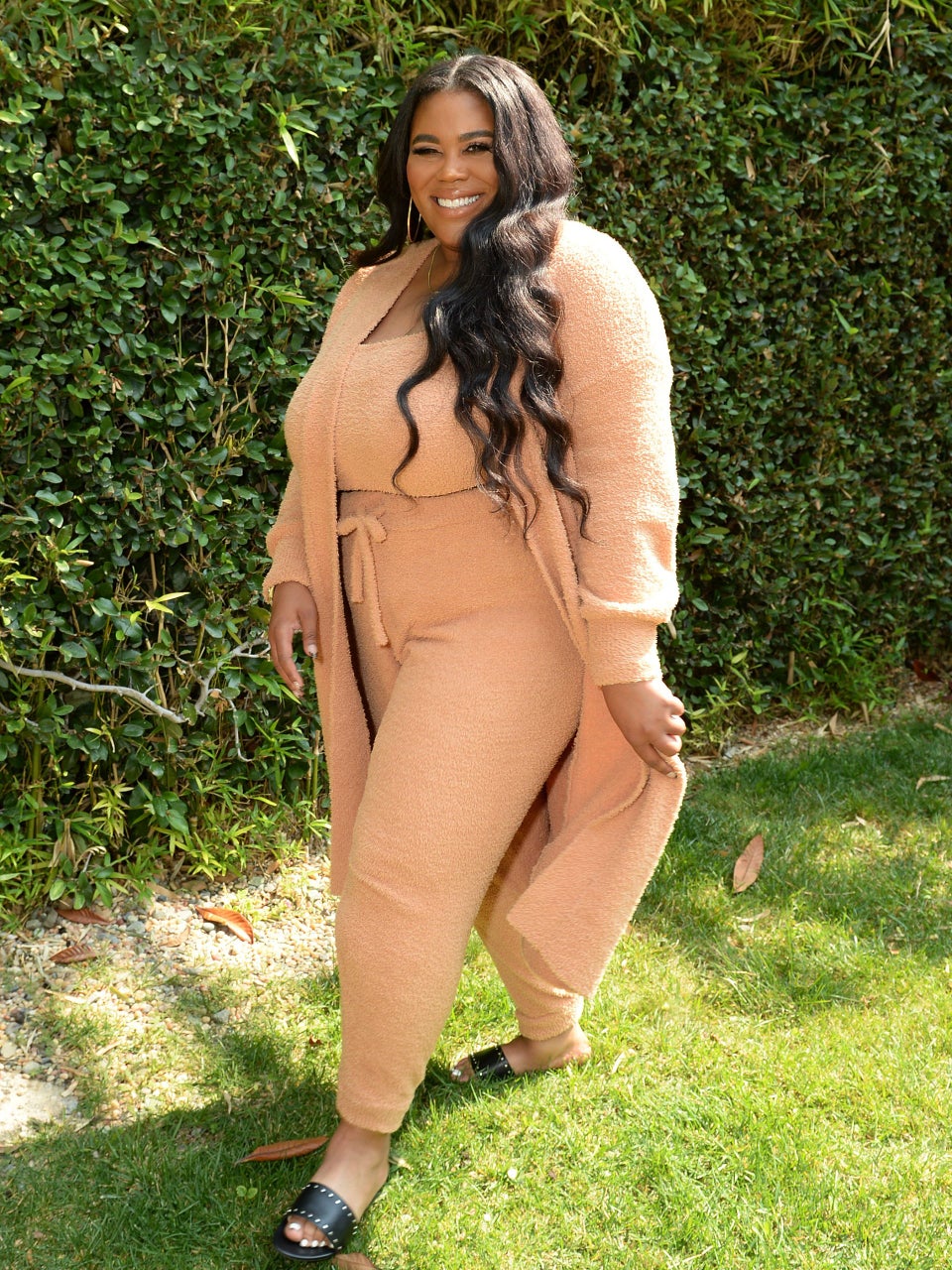 Courtesy of Nina Parker By Veronica Wells ·Updated October 26, 2021
Courtesy of Nina Parker By Veronica Wells ·Updated October 26, 2021
Journalist and E! ‘Nightly Pop’ host Nina Parker was hosting an Instagram Live when she noticed that she was short of breath. After assuming she simply must have been more out of shape than she realized, she began playing a guessing game to figure out what was really going on. She finally went to the doctor, where she learned that she had asthma. Though she was initially “embarrassed” about her diagnosis, she learned that she’s far from being alone in having it.
Parker is one of more than 25 million Americans living with asthma. Black Americans are five times more likely than their white counterparts to end up in the ER for severe asthma and have an overall higher mortality rate. Seeking to change that, she’s working with Amgen/AstraZeneca for a new campaign called Break the Cycle, which seeks to encourage those with asthma to learn about the type they have, how to go about finding the right doctor to treat them, and offer the best ways to “break the cycle” of unpredictable, debilitating symptoms when you don’t have control of your condition.
We spoke to Parker about her diagnosis, navigating the healthcare system as a Black woman and advocating for herself to get the best treatment, and her partnership with Amgen/AstraZeneca for their Break The Cycle campaign.
ESSENCE: What did you think when you first learned you had asthma?
Nina Parker: First, I felt relieved because there was a name for what I had been experiencing. When you’re experiencing breathing issues—especially in the world we’re living in right now, we get paranoid. We try to diagnose ourselves. So to know that this is asthma, I thought ok. Then I thought, I’m a grown woman. Is this supposed to happen? I felt a little nervous because I like to hike. I like to go on long walks. Is this going to hinder me from physical activity?
I had these fears from things I’d seen from movies. I didn’t grow up with anyone in my house or family living with asthma. I literally stopped working out with friends because I was embarrassed.
That’s why Break the Cycle was so cool because there’s a community there. One thing that helped me was talking to other people who had asthma and hearing how they dealt with it. It gave me hope to know that I can hike and do the things that I love. It’s not anything that’s going to hinder me from my everyday life.
After your diagnosis, how was it navigating the healthcare system?
When I initially had the diagnosis [I decided] to see a specialist. I didn’t necessarily feel heard. We know that’s an issue with Black women in hospitals. I wanted to have that freedom to be able to ask questions. As a journalist, I ask questions. I wanted to be able to ask as many times as I needed to, to feel comfortable. I’m the kind of person who needs to internalize it a few times. I was able to find a specialist who meshed with me. I won’t say I had a horrible experience but I did want to feel more comfortable. If you are not getting what you need from your doctor, it’s okay to find someone who better suits you and caters to what you need.
What adjustments did you have to make?
I didn’t have to make a ton [of adjustments]. There were obviously medicines I was prescribed and we figured out what was best for me. It was almost like my body got in sync with me once I knew what was going on. I was probably dealing with a level of anxiety because I didn’t know. I think there is a part of you that calms down a little bit once you know. Once I know, I can develop a plan.
It’s no secret that many Black people don’t trust our healthcare system. And for good reason. What would you say to someone who suspects they’re sick but is scared to go to the doctor?
I think it catches up to you eventually. Just because you don’t think about it doesn’t mean that things go away. I think we all think we’re superhuman at some point in our lives. And when you get a diagnosis, there can be a little bit of shame with that. What you realize is, there’s nothing to be ashamed about. And for me, working in news, I feel better when I’m educated. When you’re in the dark, when you have no resources, that’s what’s scary.
You can learn more about Break the Cycle here.
TOPICS: advocacy asthma health and wellness Nina Parker
The post How TV Host Nina Parker Overcame The Fear And Embarrassment That Came With Her Asthma Diagnosis appeared first on Essence.


0 Commentaires